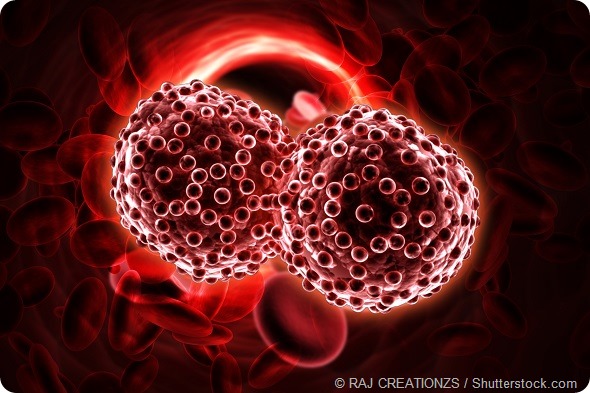Health economics studies, published today in The Lancet Hematology, report that the cost of treating blood cancers is twice that for treating other cancers. This is largely because they require more complex treatment regimens that necessitate longer hospital stays.

Blood cancer is a term used to describe a range of cancers that affect the blood, bone marrow and lymphatic system, such as Hodgkin’s lymphoma, non-Hodgkin lymphoma, multiple myeloma, and leukemia.
Blood cancers affect a large number of people and cause the death of around 100,000 people in Europe every year. Non-Hodgkin lymphoma is the sixth most common cancer in the UK.
There are also non-malignant blood disorders, such as anemia, hemorrhagic disorders and disorders of the spleen or immune mechanism. The most common of these, anemia, affects approximately 1·6 billion people worldwide. This equates to about one in every four people.
A team of health economics researchers from the University of Oxford and King’s College London conducted two studies to estimate the economic cost of treating blood disorders (malignant and non-malignant) in 31 European countries during 2012.
Their evaluation included healthcare costs, informal care costs and productivity losses (due to premature death, and being too ill to work) obtained from international health organizations (WHO and EUROSTAT) and national databases.
Economic intelligence on cancer is essential for cancer policy-makers across Europe. Understanding the economic burden of blood cancers helps systems plan properly funded care systems for all patients".
Professor Richard Sullivan, King’s College London.
They calculated that the cost of blood disorders in 2012 was €23 billion. Healthcare costs, mainly inpatient care and medication, accounted for 70% of these costs. The average healthcare costs varied widely between countries, with the costs in Finland being nearly twice those in Belgium, despite both countries having a similar national income per capita.
Dr Jose Leal of University of Oxford commented “Non-malignant blood disorders cost the European economy nearly as much as all blood cancers combined. We found wide differences in the cost of treating blood disorders in different countries, likely linked to the significant differences in the access and delivery of care for patients with blood disorders. Our findings suggest there is a need to harmonize care of blood disorders across Europe in a cost-effective way.”
When compared with the treatment of other types of cancer, the total costs incurred by blood cancer were the fourth highest after lung cancer, breast cancer and colorectal cancer.
However, only breast cancer was associated with greater healthcare costs than blood cancer. The average treatment cost for blood cancer in 2012 was €14,674 per patient. This is almost double the average cost per patient for all cancers combined.
The high cost of treating blood cancer is probably a consequence of the complex, long-term treatments required, e.g., bone marrow transplants, multi-agent chemotherapy and radiotherapy, and the need for longer in-patient care.
These costs are also likely to have increased as newer, more expensive drugs have been approved for the treatment of blood cancer since 2012.
Sources
- Burns R, et al. Economic burden of malignant blood disorders across Europe: a population-based cost analysis. Lancet Haematol. 2016. Published online 21 July 2016. Available at:
- Luengo-Fernandez R, et al. Economic burden of non-malignant blood disorders across Europe: a population-based cost study. . Lancet Haematol. 2016. Published online 21 July 2016. Available at: http://www.thelancet.com/journals/lanhae/article/PIIS2352-3026(16)30061-8/fulltext